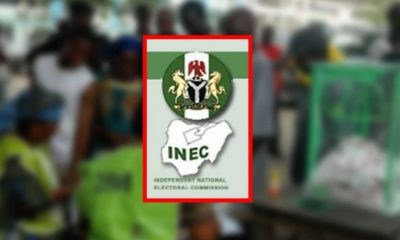Elections: EU observers commend INEC
The European Union Election observation Mission (EUEOM) to Nigeria has commended the Independent National Electoral Commission (INEC) for improving electoral procedures and logistics following the March 23 supplementary Governorship election.
In a statement released in Abuja on Monday, EU EOM explained logistical arrangements and procedures were mostly followed in areas observed by the mission.
“INEC improved logistical arrangements with most polling units observed, open within half an hour of the official opening time.
“In the polling units that could be fully observed, there were improved logistical arrangements and procedures were mostly followed.”
“Smart card readers were used to accredit voters in all polling units observed.
“However, manual accreditation procedures were not always correctly followed if card readers failed to authenticate fingerprints.”
The group observed that collation process was followed and finalised within 24 hours in many states.
“The collation process was finalised in Bauchi, Benue, Plateau and Sokoto within 24 hours, but in Kano it was suspended for several hours due to concerns over the safety of lower-level collation staff.
“For security reasons, collation of results in two of 29 LGAs in Kano had to be undertaken at the state collation centre.
“Similarly, ward collation had to be undertaken at one Local Government Area (LGA) in Bauchi.
“EU observers noted that overall collation procedures were followed and the process was generally transparent.”
The mission added that the media played a vital role in enhancing the credibility of the election.
“Adding to transparency of the process, the media provided live coverage of state-level collation.
“Positively, national and state-level media in Benue, Plateau and Sokoto regularly updated the public about the supplementary elections.
“Media and social network users also scrutinized and debated the use of state resources in the days before the supplementary elections.”
The Chief Observer, Maria Arena, will return in June to present the mission’s final report, which will include recommendations for future electoral processes.
EU observers visited 12 collation centres and observed party agents present in all.


